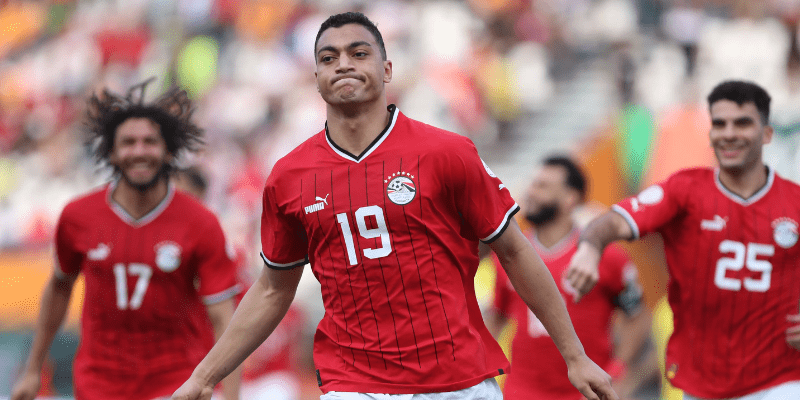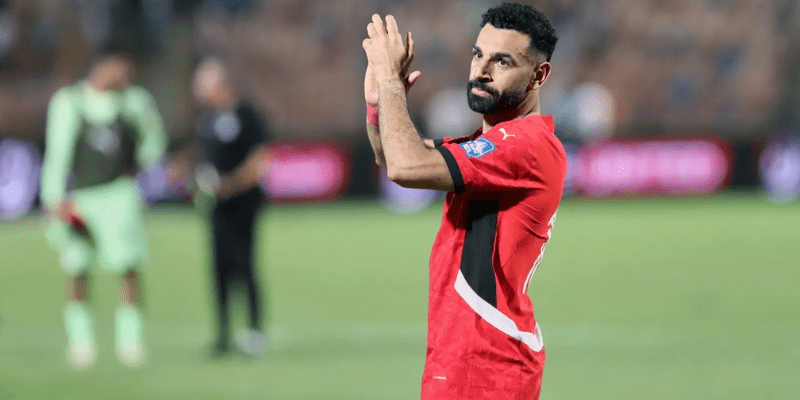When you read the phrase Egypt’s best performance at the World Cup, you might expect tales of quarter-finals or memorable knockout wins. But for the Pharaohs, the story is more bittersweet — a mix of “what ifs,” trailblazing history, and unmatched national pride. In this article, IndiGoal will guide you through Egypt’s World Cup journey, explore what counts as their “best” showing, and dive into the stats, stories, and faces behind the records.
Egypt’s World Cup history at a glance

To understand what counts as Egypt’s best at the World Cup, we first need a clear picture of their tournament history.
- Egypt has qualified for the FIFA World Cup just three times: 1934, 1990, and 2018.
- Over all those appearances, the team has played 7 matches, with 0 wins, 2 draws, and 5 losses.
- Their best result by standings came in 1934, when they reached the Round of 16.
- In the later tournaments (1990 and 2018), they never advanced past the group stage.
So, strictly by progression, 1934 stands as Egypt’s headline “best performance.”
And by competitive stature, that is the benchmark — even though it came in an era when the tournament format was very different.
These facts show that Egypt’s World Cup story isn’t about glittering breakthroughs — it’s about resilience, gaps, and the weight of expectations.
The landmark 1934 World Cup: Egypt makes history
A historic first for Africa and Arab football
In 1934, Egypt became the first African and Arab nation ever to qualify for the FIFA World Cup finals. That alone makes their 1934 run monumental.
At that time, the finals’ format was straight knockout: there were no group stages, just eliminations from the get-go. Egypt’s only match was against Hungary — and although they were eliminated, their participation echoed across the continent.
The match and the legacy
Egypt’s sole match in the 1934 finals ended 2–4 in favor of Hungary. Despite the scoreline, the Egyptians put up a fight, and one player, Abdulrahman Fawzi, scored both goals for his side — making him one of Egypt’s top World Cup goalscorers and a legend in African football lore.
Because that round was technically a Round of 16, some records list Egypt’s “best finish” as Round of 16 in that tournament.
But it’s important to contextualize: there was no group stage, fewer teams, and early exits were common. Still, that appearance remains proudly Egypt’s highest “finished stage” at a World Cup finals.
1990 and 2018: returns with frustration
While 1934 is their historic high point, Egypt’s later World Cup returns also offer chapters of near-glory and heartbreak.
1990 — comeback after 56 years
After a 56-year absence, Egypt returned to the world stage in Italia ’90.
- They were drawn into a tough group alongside Netherlands, Republic of Ireland, and England.
- Against the Dutch, Egypt managed a 1–1 draw — a standout moment.
- They also drew 0–0 with Ireland — their second and final draw in World Cup history.
- But losses to England (1–0) and Uruguay (1–0) sealed their exit.
Egypt ended the tournament at 20th place (among 24 teams), with a record of zero wins, two draws, and two losses.
The solidity and grit shown in that tournament, especially given the long absence, give 1990 emotional resonance — but in terms of pure advancement, it doesn’t surpass the 1934 outing.
2018 — Salah era, high hopes, harsh realities
In Russia 2018, Egypt made their most recent appearance. Expectations were high — led by Mohamed Salah, now a global star.
They faced a strong group: Uruguay, Russia, and Saudi Arabia. But:
- They lost 0–1 to Uruguay
- Lost 1–3 to Russia
- Lost 1–2 to Saudi Arabia
They scored 2 goals total in the group, conceded 6, and exited without a point — last in the group, 31st overall among the 32 teams in the standings for that tournament.
Though fans hoped for history, 2018 ended in frustration. Still, it reaffirmed Egypt’s status as a national powerhouse hungry for a World Cup breakthrough.
What “best performance” really means for Egypt
Because Egypt has never won a match at the World Cup finals, judging “best performance” becomes a nuanced task. Here are the key dimensions we can use:
| Metric | Best Value | Context |
| Farthest stage reached | 1934 — Round of 16 | Their only match was in a knockout bracket. |
| Highest final standing | 1934 — 13th place (or “13th”) | As. |
| Most draws / non-losses | 1990 — 2 draws | A sign of defensive solidity. |
| Most goals scored in finals | 1934 — 2 goals (by Fawzi) | Still stands as one of their best offensive showings. |
Viewed through these lenses, 1934 emerges as Egypt’s official “best performance”. But 1990 carries emotional weight for bridging a long gap, and 2018 embodies modern hopes and national passion.
So when we say “Egypt’s best performance at the World Cup,” it is rooted in 1934’s groundbreaking entry — but the narrative remains open, fueled by every return and every attempt.
Players and moments that left Egypt’s imprint on World Cups

Even without knockout runs or match wins, several individuals and moments stand tall in Egypt’s World Cup history.
- Abdulrahman Fawzi (1934): His two goals in that 2–4 loss to Hungary make him one of Egypt’s all-time top scorers in World Cups.
- Hossam Hassan (1990): A talismanic figure in Egyptian football — his leadership and presence helped in Egypt’s resilient showing after decades away.
- Magdi Abdelghani: Among the players in 1990 who matched the most World Cup appearances for Egypt.
- Mohamed Salah (2018): The face of modern Egypt football, he arrived with stars and expectations. Though the tournament ended poorly, his status and goals (two scored across appearances) remain key references.
- Essam El-Hadary (2018): At 45, he became the oldest player ever to appear in a World Cup match, and saved a penalty during the tournament — a big moment of pride despite the team’s overall failure.
These individuals helped shape the emotional contours of Egypt’s World Cup chapters, even when the wins never came.
Why Egypt has struggled — and where hope lies

The challenges
- Limited World Cup exposure
- Qualifying is fiercely competitive in Africa. Egypt’s World Cup appearances are few, limiting learning and momentum.
- Difficult group draws
- Both 1990 and 2018 placed Egypt in groups with powerhouses. Even a draw or surprise win would require peak performance.
- Pressure and expectation
- With Salah and recent continental success, the weight of national hope is heavy. Mistakes become magnified.
- Lack of World Cup match wins historically
- Never having won a match creates an aura of psychological barrier — both for players and fans.
The hope moving forward
- Current form and qualifying push: In recent qualifiers, Egypt has shown strong form, meaning the next World Cup might bring better preparation and mindset.
- Next generation of players: New talents are emerging, blending European experience with Egyptian passion.
- Tactical evolution: Modern African teams are increasingly adopting flexible, disciplined systems — Egypt can lean on that trend.
- Home confidence and national pride: Egypt’s fan support remains fervent. In a right draw within reason, a breakthrough is within sight.
If Egypt ever reaches a knockout round again (or finally wins a match), then the conversation about Egypt’s best performance at the World Cup will shift.
Conclusion
Egypt’s best performance at the World Cup can best be anchored in 1934, when they became the first African and Arab nation to qualify and reached the Round of 16 in their sole match. That outing remains their highest finish — but not their most charged moment.
1990’s return, with gritty draws and dignity after 56 years, and 2018’s campaign under Salah’s banner also carry cultural weight. Each chapter adds to Egypt’s narrative on football’s biggest stage, even in the absence of a match win.
As fans, we hold on to hope. The Pharaohs have yet to win a World Cup finals match — but the dream is alive, and every qualifier, every passing generation, brings them closer.
IndiGoal invites you to stay tuned: follow Egypt’s qualifying journey, track squad changes, and revisit this history when they take the pitch again — because one day, the line “Egypt’s best performance at the World Cup” may be rewritten entirely.






